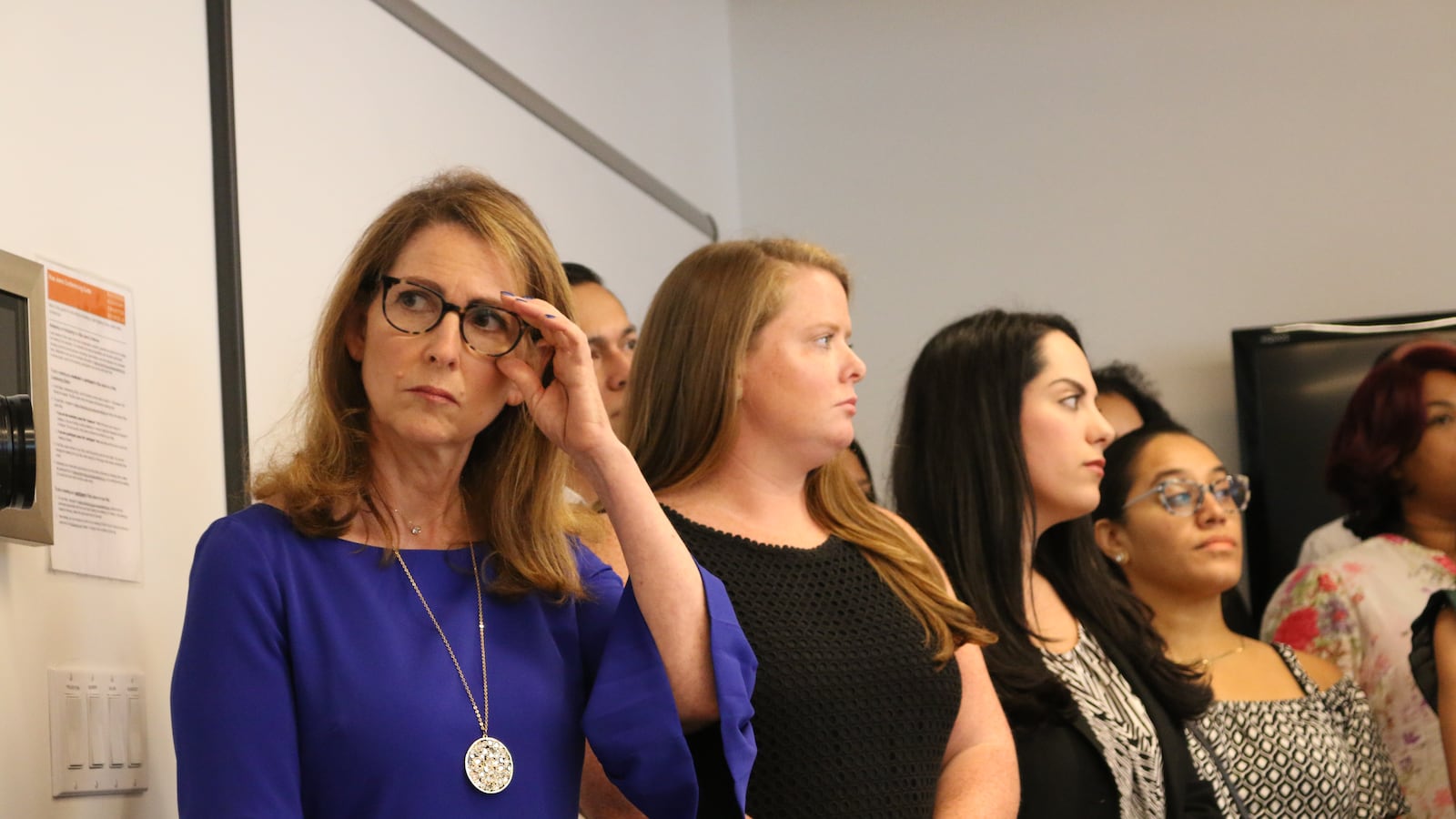New York City’s largest charter operator is launching a fast-track program designed to quickly train business leaders to become principals at schools across the network and elsewhere.
Starting this spring, Success Academy is kicking off a two-year program to take “talented leaders from across industry” — especially those with MBAs — and convert them into principals at one of the network’s 47 schools or at other schools across the country.
The program is noteworthy partly because it could help address a consistent problem among New York City charter schools: They tend to burn through principals at a higher rate than traditional public schools do.
Last school year, 25 percent of the city’s charter school principals were new, more than double the turnover rate at district schools, according to a recent Manhattan Institute report. Success has also struggled at times to retain principals and teachers, a challenge that has contributed to a tumultuous period at its first high school, Success Academy High School of the Liberal Arts in Manhattan. Success officials said 10 of its schools had new principals this year, adding that three of them were at new schools.
“I don’t know if we have a strong sense either way about whether this will be effective or not,” said Marcus Winters, the researcher who authored the Manhattan Institute turnover study, noting that there is not a large research base to draw on. Researchers often “focus on teachers, but principals and other administrators really mean a lot.”
It’s not clear how many of the inaugural class of 25 fellows will wind up running a Success Academy school. The fellowship application says the boot camp is “designed to train talent new to education to become principals in our growing network of schools.” But Success spokeswoman Ann Powell also emphasized that some fellows would likely “go directly to lead schools across the country” — an effort to spread the charter network’s model elsewhere.
In the first year of the new Success program — known as “Robertson Leadership Fellows” — participants will spend three weeks learning “the basics of school design and school leadership” before spending a couple of months learning about data and operations from the central office team.
The next four months will be devoted to teaching and learning; fellows will also participate in a “specialized track” of Success Academy’s own teacher training program to learn about instruction and teacher preparation. Finally, fellows will spend a six-month stint working as an assistant principal. The entirety of the second year will be spent as an assistant principal — though at a different school than during year one.
Fellows are paid on a scale similar to assistant principals, Powell said, though she did not answer questions about their exact compensation or how much the program will cost. The Robertson Foundation, which is funding the program and has invested heavily in Success Academy, did not answer specific questions about the program, including its cost.
The program is reminiscent of former Mayor Michael Bloomberg’s boot camp for aspiring principals, which also believed business principles were useful in running schools. Under that program, less experienced educators could be elevated into leadership positions after a fast-track training program that taught them to run schools like CEOs. The Aspiring Principals program was controversial; some critics argued leaders without lots of education experience should not quickly vault into principal positions.
Research found the program had some positive effects on student test scores, but a different analysis found that schools run by the program’s graduates had higher rates of teacher turnover and lower grades on progress reports. The program was ultimately phased out in 2017 under Mayor Bill de Blasio.
Eric Nadelstern, a deputy chancellor during the Bloomberg administration who later ran a principal training program at Teachers College, said hiring leaders from other industries can work, but isn’t always the best strategy.
“It’s useful for somebody to have spent time in a school to be a good principal,” he said, noting the Teachers College program required three years of classroom experience. “The focus should be home grown people from your own schools who have done an outstanding job.”
Success officials acknowledged that internal teacher candidates would not be eligible for the fellowship program, but said there are alternative routes for educators to become principals. The program will be overseen by Aparna Ramaswamy, the network’s chief leadership and human resources officer, Powell said. The first group of fellows are set to begin training in April.
Clarification: This story has been updated to clarify the description of the Aspiring Principals program and the number of new principals at Success Academy schools.

